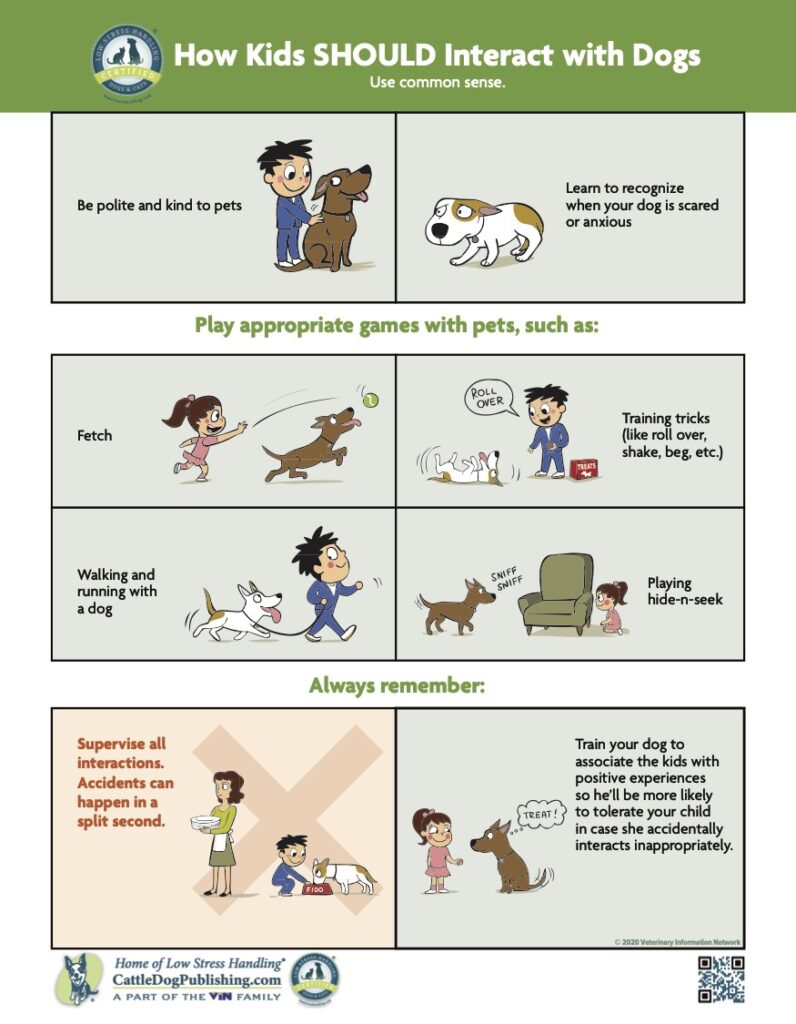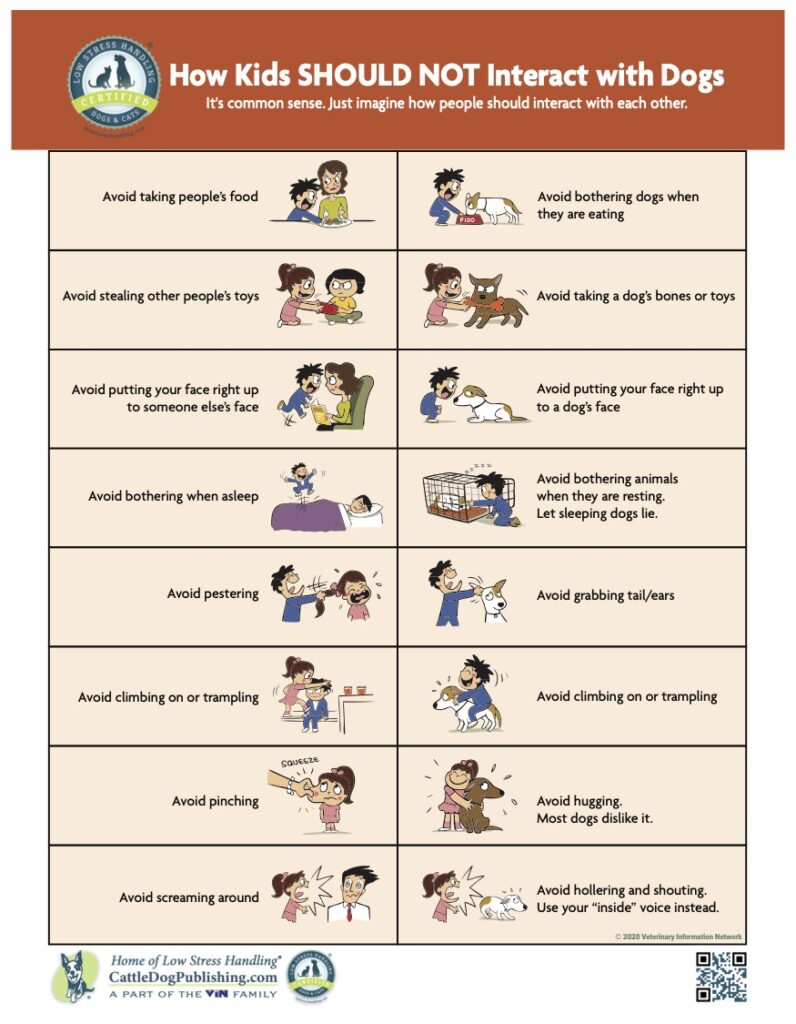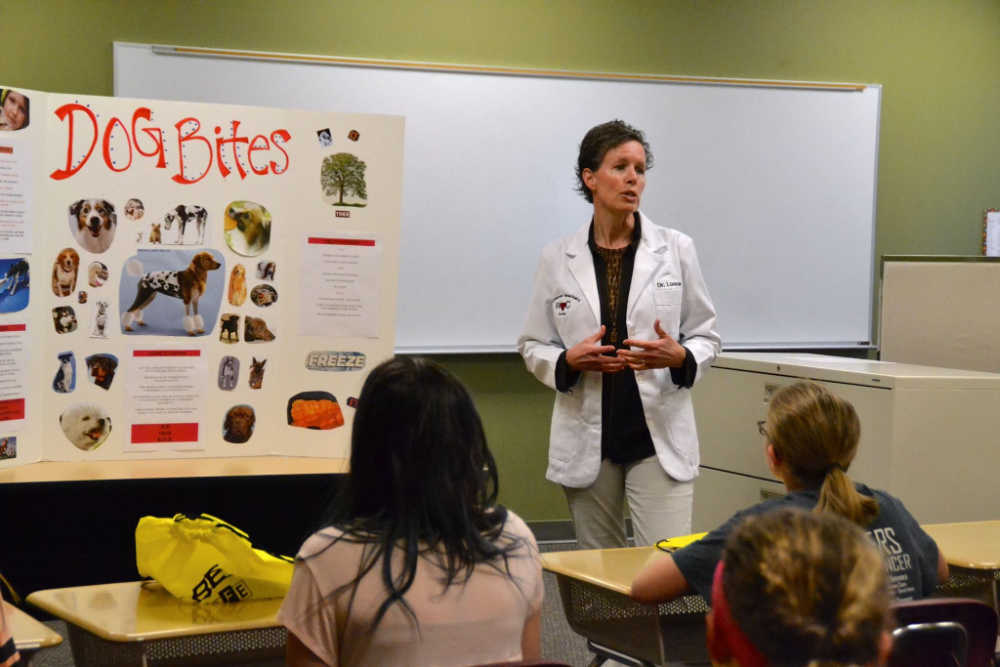April 9-15th in 2023 is National Dog Bite Prevention week. The American Veterinary Medical Association (AVMA) cosponsors this event annually the 2nd full week of April. This week attempts to raise awareness on the high numbers of dog bites each year. In 2020, insurance companies paid out $853.7 million for 16,991 dog bite claims. The dog bite numbers are increasing but more importantly the dollars paid out for each claim has risen significantly. With the interest in taking our dogs more places this statistic is sure to grow over time. This number does not represent dog to dog fights which also involves cost of care to pet owners.
In March 2019 I posted a blog talking about dog bite prevention week coming up in April. This link will take you to that blog which has some great information about how to approach dogs: Dog Bite Prevention
Many of the dog bite events involve children. Dr Sophia Yin has some great posters centered around this topic. I have posted two here with permission from CattleDog Publishing to show how we should approach kid and dog interactions. If we focus on education about how to prevent dog bites, we can spare children having a lifelong fear of dogs related to these traumatic events. It has been noted that dog bites to children are as often from pets in their own homes as it is a stranger’s dog. These 2 following posters are a great reminder of how kids should and should not interact with dogs. Share this information with your families. If you see a child doing something that could trigger a bite, speak with the parents or the child to educate them on more appropriate interactions. This needs to be everyone’s mission regardless of your relationship with the dog or the child.
For many years I was involved in the Madison County Health Safety & Wellness Fair. Many professionals visited schools in the county and spent time educating the middle school kids about multiple topics. There were doctors, dentists, chiropractors, police, fire, ambulance, etc. that presented to the students. My topic each year was Dog Bite Prevention. I spent 12 minutes covering general information about what to avoid and how to protect yourself in the event of an attack. I sent home information with each student and we spoke to 6-8 different groups in a matter of a few hours. When covid hit in 2020, the program was halted and has not been restarted. It is necessary to somehow spread the word about dog bite prevention. If you have children or grandchildren share this information with them. Do not ever think that any dog is above biting. Many people whose dogs have attacked people have said, “I do not know what happened. They had never done this before.” It can happen to you so be prepared.
Early intervention is still key when trying to prevent aggression with your dog. Spay and neuter since dogs left intact are 3 times more likely to bite. Take puppies less than 4 months of age to classes. It has been proven that early socialization to lots of people, other dogs, and new experiences helps make your dog more comfortable as an adult when introduced to new situations. Going to dog classes gets you time with pet trainers to ask how to deal with behaviors that are considered normal in dog world but unacceptable when interacting with people. Learn how to play with your puppy and what is not advised to prevent behavior issues. Classes often train the humans as much as we hope to train our puppies. If you get a puppy do not wait to start training. A puppy goes from 0-16 years of age in the first 12 months. We all know how difficult it can be to retrain a teenager SO START YOUNG.



